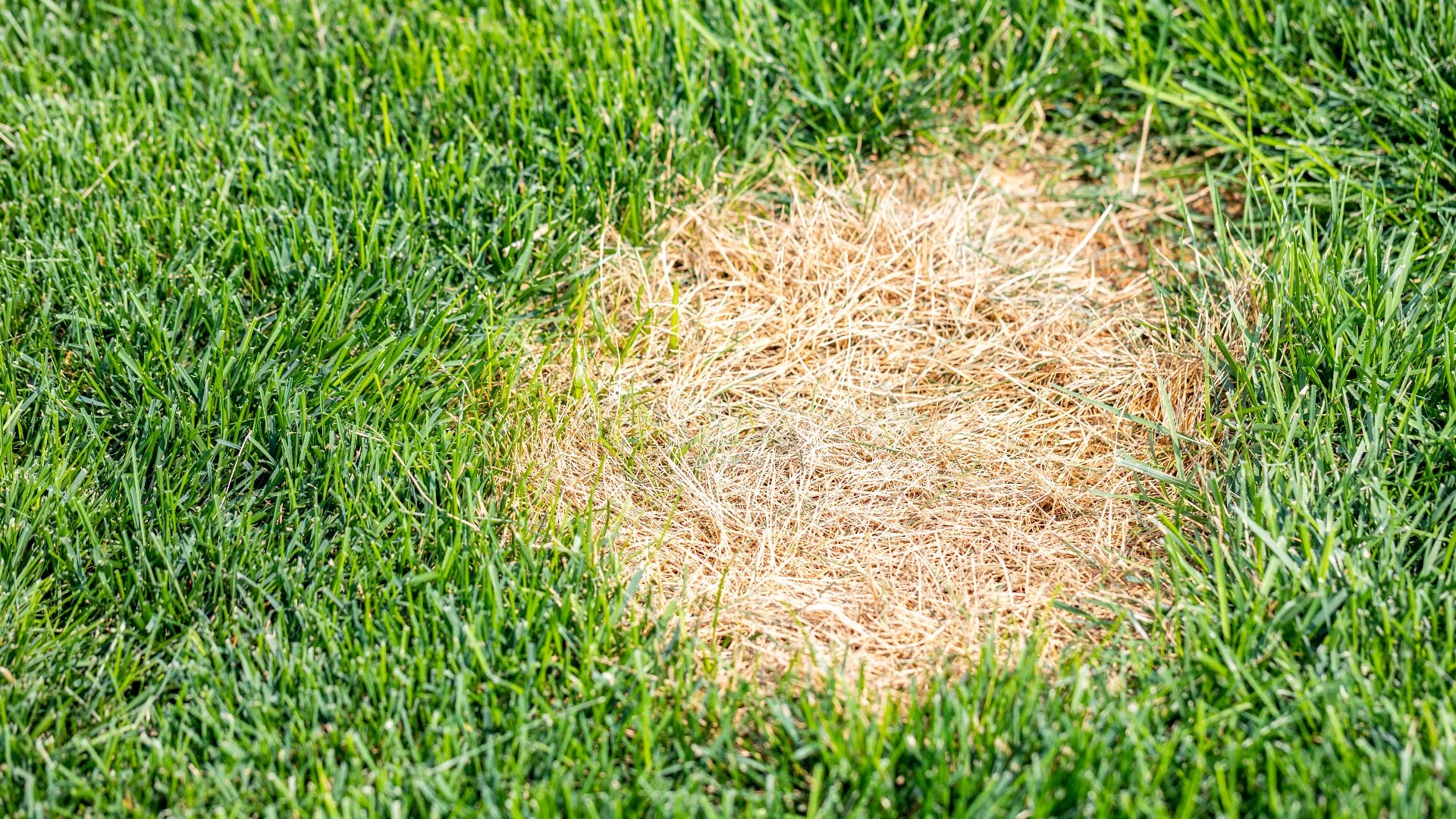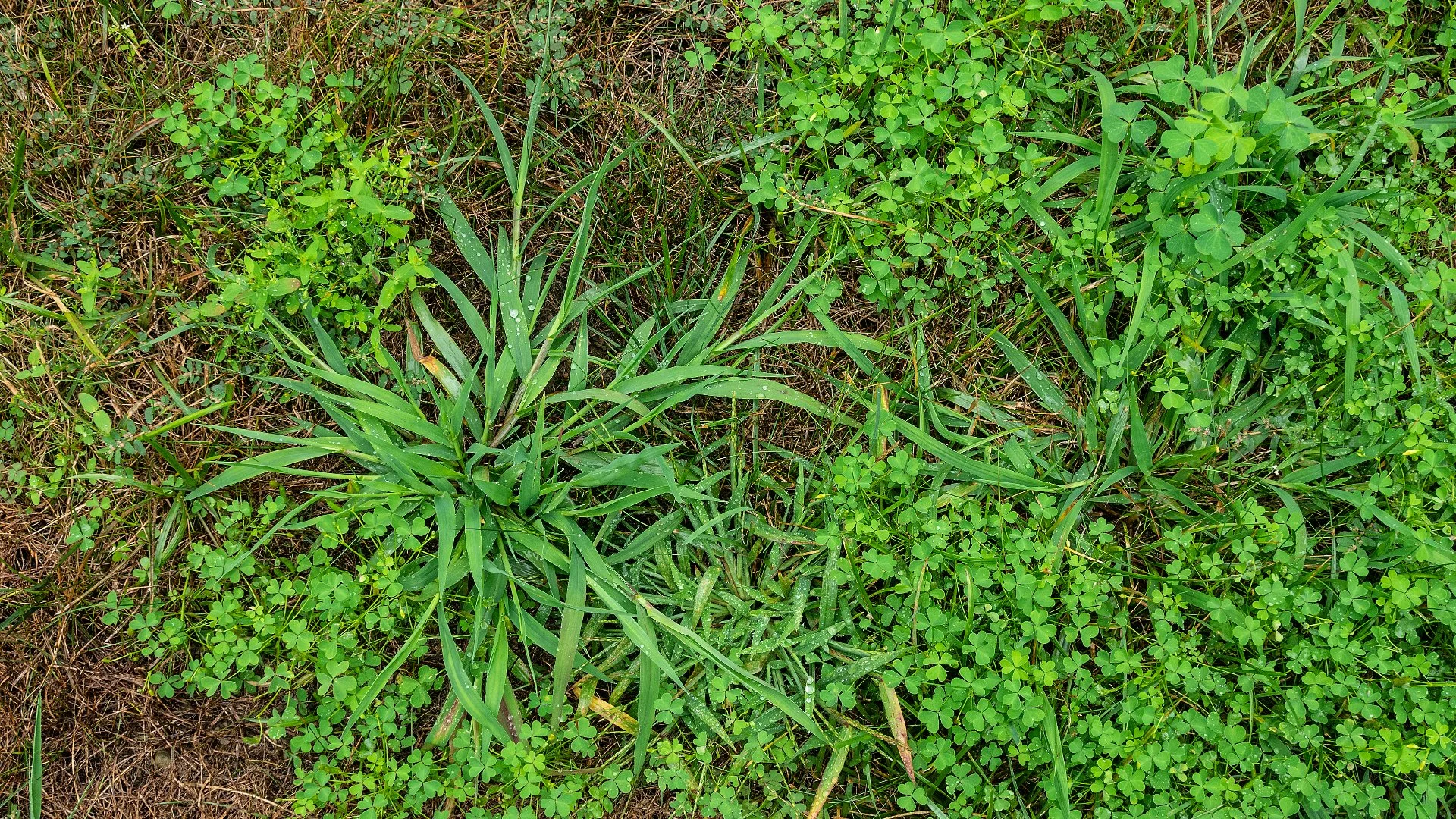In Pennsylvania, summer is winding down, which means the kids are back to school, whether, in the classroom or remote, the days are getting shorter, and the air is getting cooler. It won’t be long before we’re sipping apple cider and dressing up for Halloween.
While it may not seem like it, preparing your lawn for the cooler temperatures now can help save you time and money this spring. Your friends at Delaware Valley Turf have prepared a list of fall lawn care tips to help set up your lawn for success just in time for creating snow angels.
Don’t Stop Mowing Till the First Hard Freeze
Here in Pennsylvania, most of our lawns are made up of cool-season grasses. Therefore, your grass will continue to grow until that first hard freeze. To keep your turf healthy and strong, don’t stop mowing. As fall progresses, drop down your mower and cut your grass one to two inches shorter than you have the rest of the season. When it comes time for that one final mowing, cut a little further.
Continue to Water As Long as You Mow
As the temperatures shift and your grass is no longer under heavy stress from the intense summer heat, it may not need as much water as it once did, but as long as the grass is still growing, it needs water. Of course, the same watering rules apply in the fall as in the summer—water in the morning when the air is cooler and less wind. And continue to water deeper and longer, penetrating the roots of your soil but less frequently.
Fertilize Your Pennsylvania Lawn
Fall is when our cool-season grasses such as bluegrass, fescue, and ryegrass recover from summer stressors such as heat, drought, and overuse. Fertilizing your lawn during the fall will help rebuild your grassroots, provide better winter color, enhance spring green-up, and increased rooting.
At Delaware Valley Turf, we offer customized lawn care programs that include the appropriate amounts of liquid weed control, granular fertilization your individual grass type needs, well into the fall season. Most Pennsylvanian lawns only need six fertilizer treatments from March through November, but we will assess your grass to ensure proper coverage.
Make Weeds a Thing of the Past
You aren’t done with weeds just yet, and they certainly aren’t done with us. Creating a healthy, robust lawn is the best way to rid your yard of weeds; however, even the strongest yards are prone to these undesirable plants. At this point in the season, many summer weeds are now loaded with thousands of seeds. Also, many weeds known as winter annuals start growing, lay dormant, and then explode in the spring. Utilizing weed control now can help prevent winter annuals from popping up their ugly heads later.
Weed control is part of Delaware Valley Turf’s lawn care programs or can be used as a stand-alone service. We assess each residential or business property and determine the appropriate amount of weed control needed. In most cases, we only need to spot treat during the fall.
Mulch for Added Protection
Give your ornamental landscapes, beds, gardens, and trees an added layer of warmth this fall. Mulching along the base of trees and throughout decorative beds can help protect your plantings from the cold as well as pests and diseases throughout the frigid temperatures. Mulching will also help prevent weed growth in spring and adds beauty to your landscape.
Tackle Your Lawn’s Surface Insect Pests
Fall is a great time to curb the pest population in your yard especially if you didn’t get around to it in the spring or summer. Autumn is the time of year when pests such as grubs and chinch bugs take to your lawn’s surface to prepare for overwintering. Tackling lawn pests now will help protect your lawn in the spring. Delaware Valley Turf can help take action. We know that the peak feeding season for grubs and worms is around the fall each year, so we prioritize preventative measures during the summer to protect your green spaces before grubs attempt to attack and infest.
Fall Is The Time To Aerate And Overseed
It’s quite normal for your yard to show signs of wear and tear if it was heavily used in the summer. Whether from playing, mowing, construction traffic, or constant foot traffic on your yard can compact the soil, making it hard and impenetrable to water, air, and fertilizers. But if your soil has been overly compacted, it can start causing your turf to wither and die. A great way to help your yard bounce back is by aerating and overseeding. Doing this in the fall will help revitalize your lawn and make it come back fuller and healthier than ever.
What Are the Signs of Compacted Soil?
- Pooling water
- Thin or bare patchy spots
- Water runoff
- Spongy grass
Delaware Valley Turf can help eliminate your soil’s stress and facilitate the growth of new grass through lawn aeration and overseeding. Performing aeration in the fall has various benefits, including improved fertilizer uptake, improved air exchange, reduced soil compaction, and stronger turf roots.
For All Your Lawn Care Needs, Call on the Professionals at Delaware Valley Turf
Since the early 2000s, Delaware Valley Turf has responded to the lawn care and athletic field needs of residents and commercial businesses in West Chester, Delaware County, the Main Line, and the surrounding areas. We offer a six-step lawn care program, aeration and overseeding, lawn surface insect control, weed control, and pest control help for the unending torment of mosquitoes and fleas.
Contact us today to learn more about each of these programs. You can visit us and fill out our form online, or call us here at (610) 328-4170.
Find more lawn care tips and ideas by following our monthly blog. Then check us out on Facebook and Instagram.





Comments (0)
Thanks for your comment!
Thanks for your feedback! Your comments have been successfully submitted! Please note, all comments require admin approval prior to display.
Error submitting comment!
There is a problem with your comment, please see below and try again.